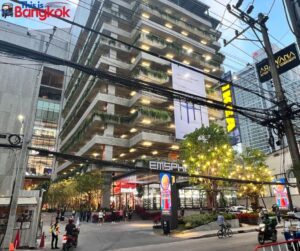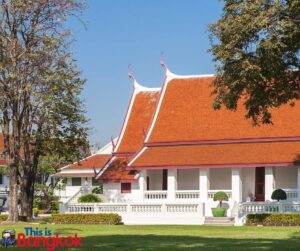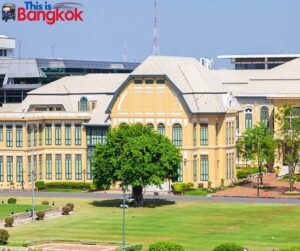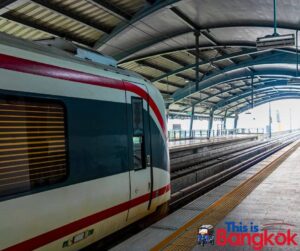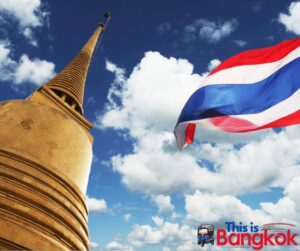Welcome to our comprehensive guide on taxes and refunds in Bangkok.
Understanding the financial landscape can be invaluable whether you’re a local entrepreneur or an international traveler.
In this guide, we’ll walk you through the intricacies of the prevailing tax system in this vibrant city.
We will also provide helpful information on claiming refunds, making your financial dealings smoother and more efficient.

Taxes in Thailand
Thailand has a tax system includes various types of taxes, including personal income tax, value-added tax (VAT), corporate income tax, and more.
A value-added tax (VAT) of 7 percent in Thailand is applied to goods and services.
Seek out stores that exhibit the “VAT Refund for Tourists” sign.
Each transaction should amount to a minimum of 2000 baht.
Provide your passport to the sales representative, who will complete a VAT refund form.
This form must be shown to the customs desk at the airport before you depart.
Here’s a brief overview:
Personal Income Tax:
Individuals in Thailand are subject to personal income tax on their worldwide income if they reside in Thailand for at least 180 days in a calendar year.
The tax rates are progressive, with higher incomes being taxed at higher rates.
As of my last update, the rates ranged from 5% to 35%.
Value-Added Tax (VAT):
VAT is a consumption tax imposed on the sale of goods and services. The standard VAT rate was 7%, with reduced rates applicable to specific items.
Corporate Income Tax:
Companies in Thailand are subject to corporate income tax on their net profits.
The standard corporate income tax rate was 20%, though certain incentives and deductions could apply to specific industries or activities.
Property Tax:
There is a local property tax in Thailand, which is typically relatively low.
It is assessed based on the appraised value of the property.
Refunds and Tourist VAT Refund Scheme
One area where tax refunds can be relevant to visitors in Bangkok is the Tourist VAT Refund Scheme, also known as the VAT Refund for Tourists Scheme.
This scheme allows eligible tourists to claim a refund on the VAT paid on certain goods purchased in Thailand.
Here’s how it generally works:
Eligibility:
Tourists who are not residents of Thailand and are departing from an international airport in Thailand are generally eligible to participate in the scheme.
Participating Stores:
Look for shops that display the “VAT Refund for Tourists” sign. These shops can issue VAT refund forms.
Minimum Purchase:
A minimum purchase amount must usually be met to qualify for a VAT refund.
This amount can vary.
Refund Process:
After making a qualifying purchase, ask the store to provide you with a VAT refund form. Keep your receipts and forms.
Departure Process:
When you’re departing from Thailand, you must present the VAT refund forms, receipts, and the items for inspection at the VAT Refund for Tourists’ counter at the airport.
The refund can be claimed in cash or credited to your credit card.
Remember that the specifics of the scheme, including eligible items, minimum purchase amounts, and procedures, can change over time.
It’s advisable to check with official sources, such as Thailand’s Revenue Department, for the most accurate and up-to-date information on taxes and refund schemes.
In conclusion
Understanding Bangkok’s tax and refund landscape can make a difference in your financial dealings, whether running a local business or visiting as a tourist.
You now have a basic understanding of Thailand’s primary taxes and tourist tax refund process.
Remember, the information provided here serves as a guide, and for the most current details, it’s always advisable to consult with Thailand’s Revenue Department or a financial advisor.
I hope you found this guide beneficial. Good luck!




